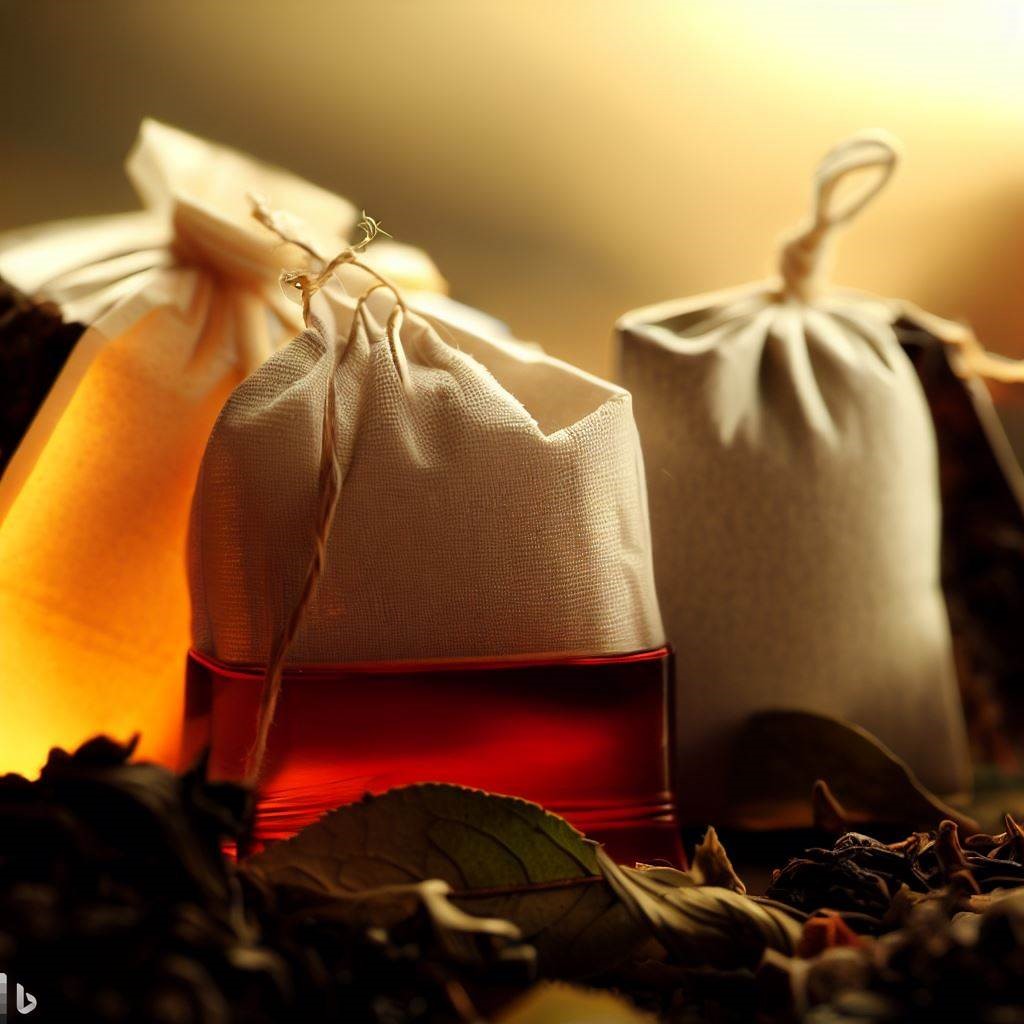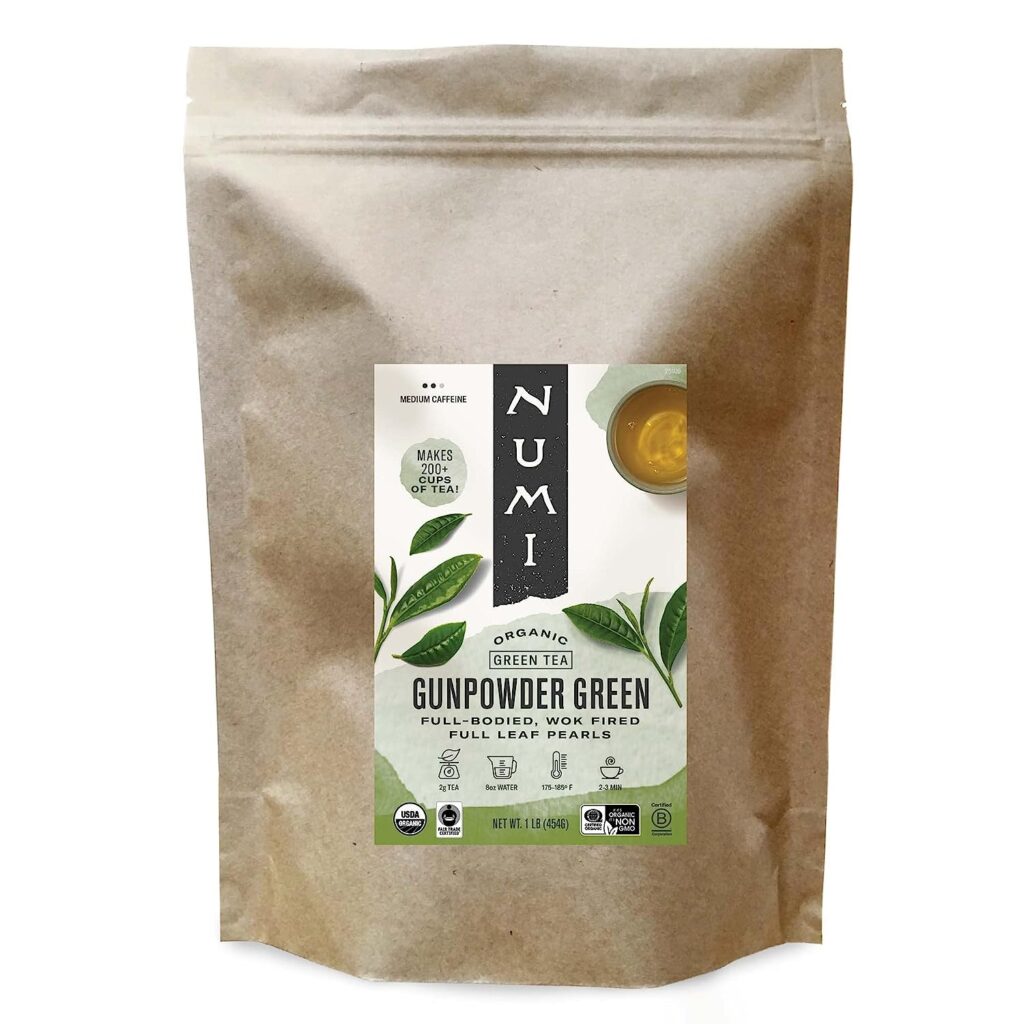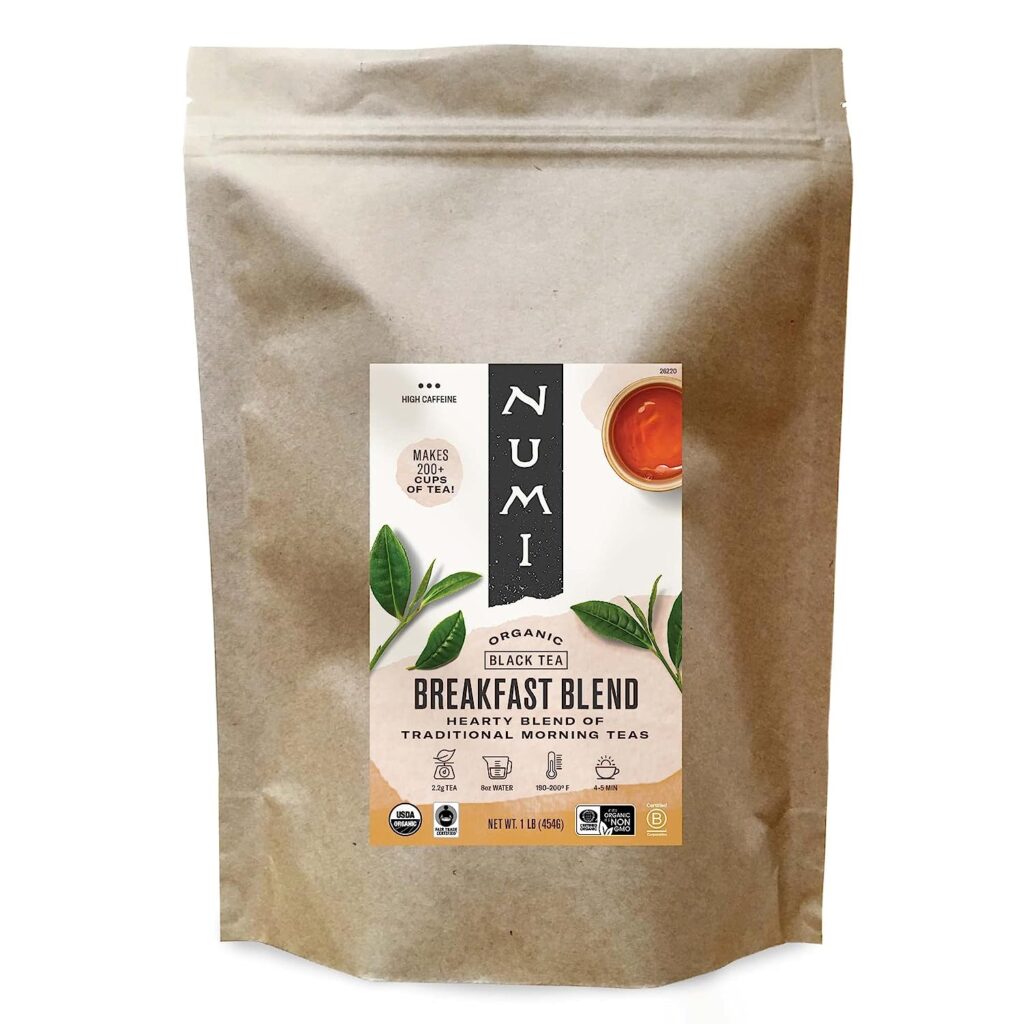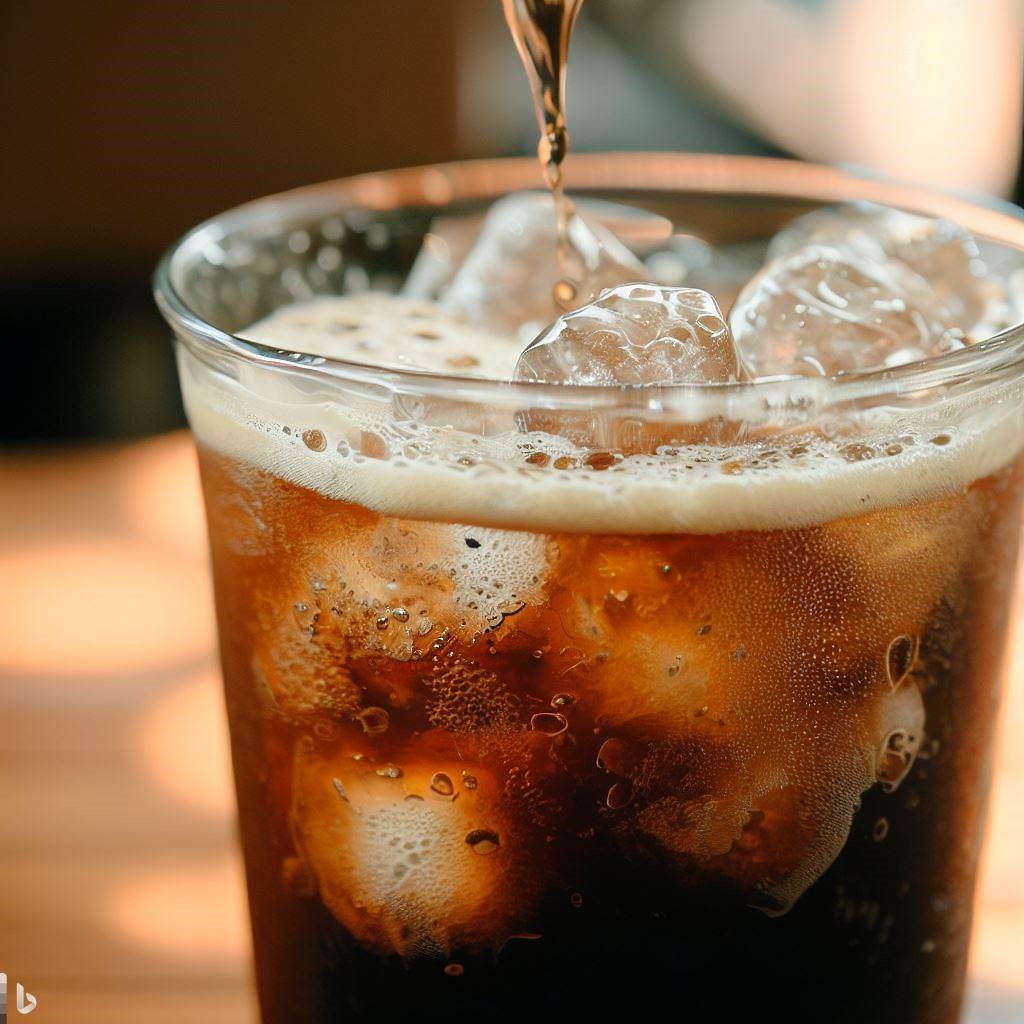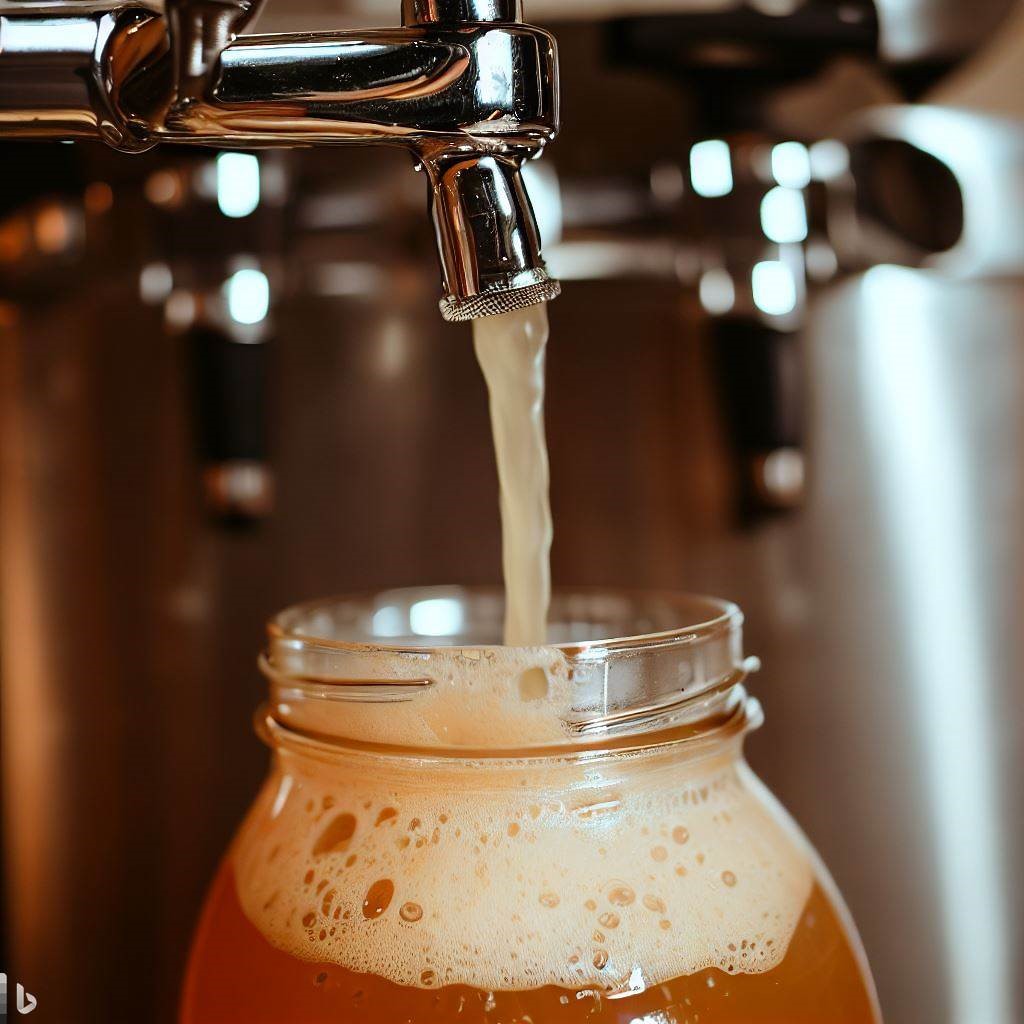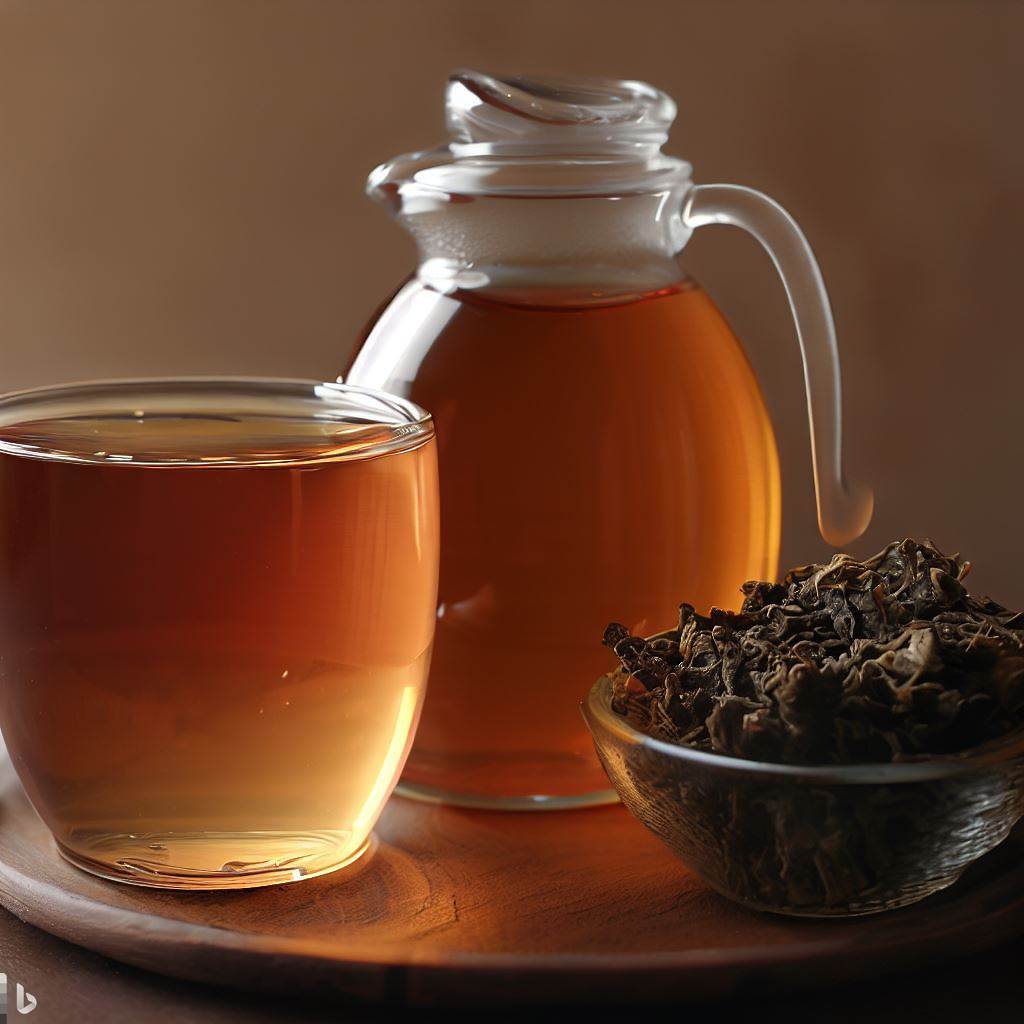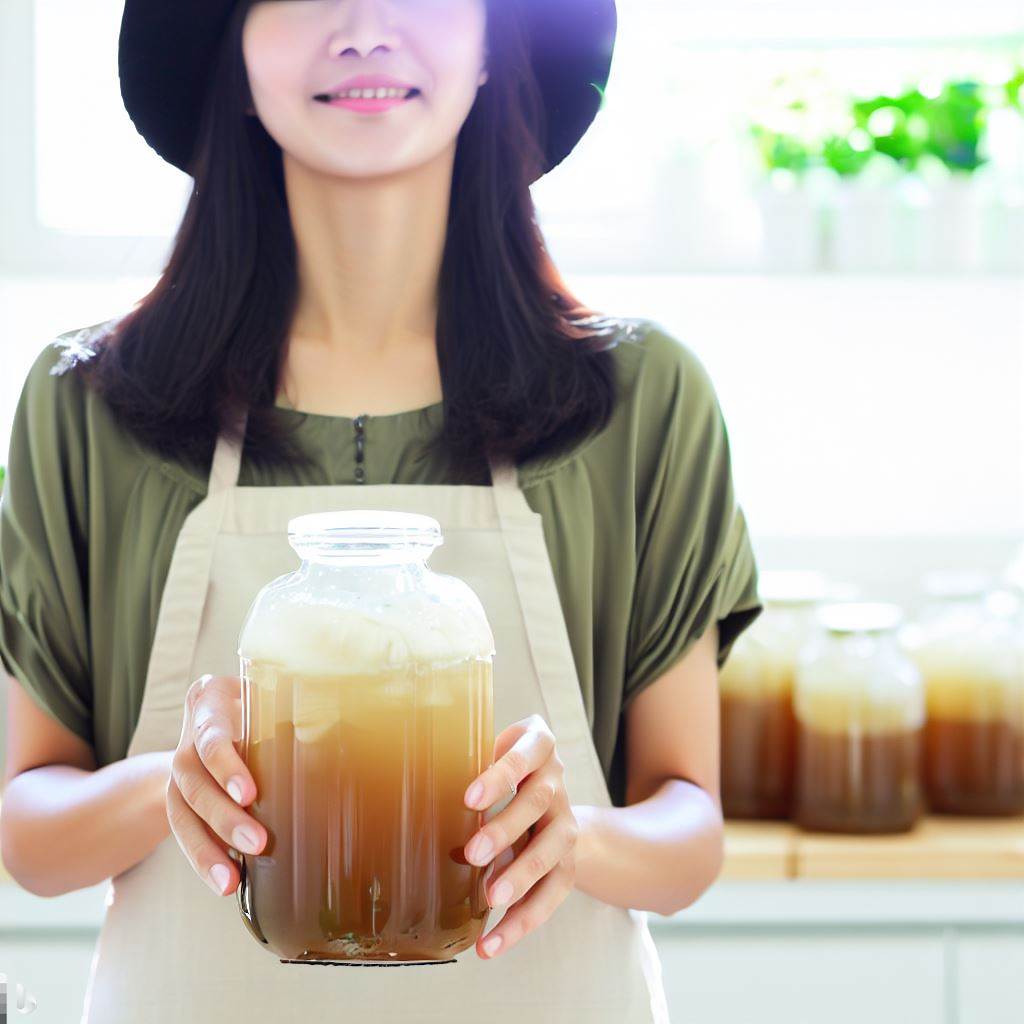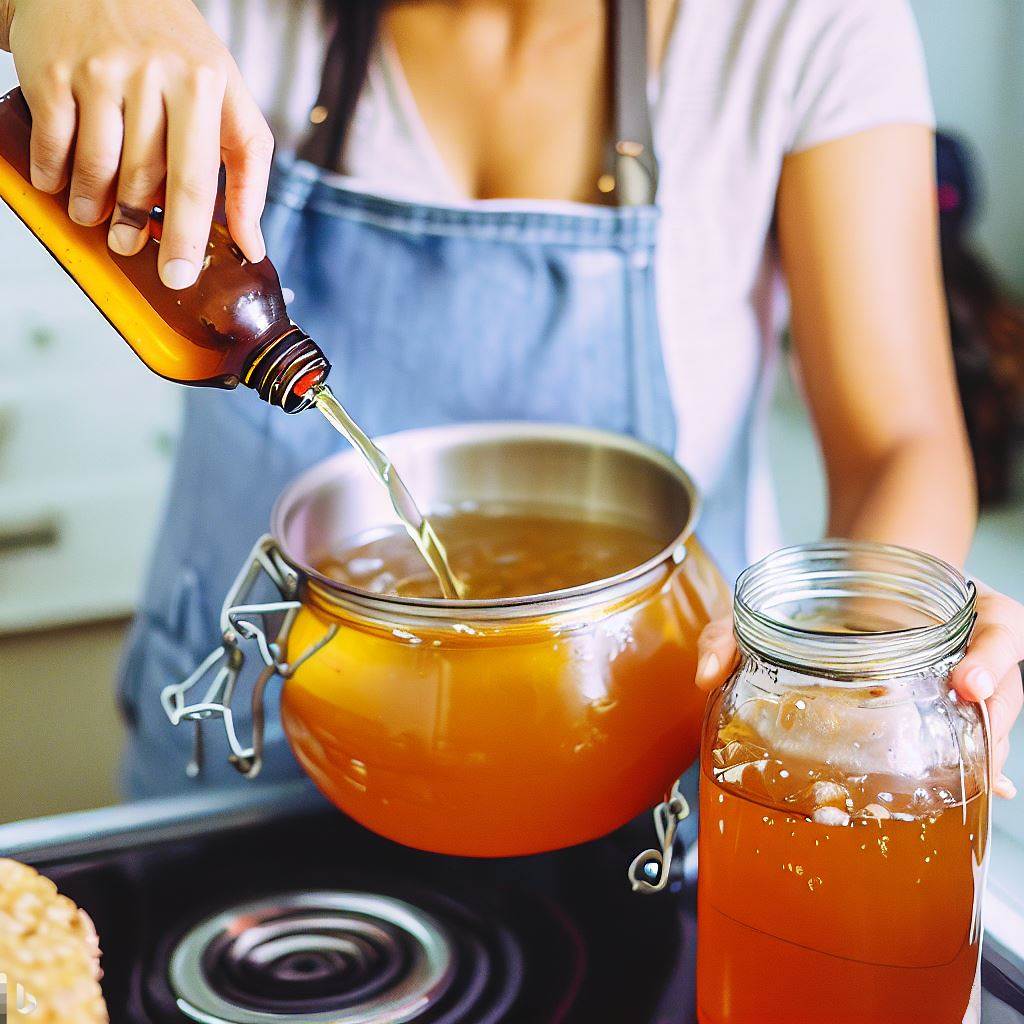During the brewing process for kombucha, tea plays a pivotal role. After all, it forms the base of this delightful fermented drink. But one question often confounds both new and experienced kombucha brewers alike: should you opt for loose leaf tea or go for the convenience of tea bags? To help you make an informed decision. This article delves into a comparative analysis of the flavor profiles produced by loose leaf tea and tea bags in kombucha brewing.
Loose Leaf Tea: A Symphony of Flavors
Loose leaf tea is often praised by tea aficionados for its superior flavor, and it’s easy to understand why. The leaves used in loose leaf tea are typically whole or large pieces, allowing them to expand and unfurl as they steep. This process, often referred to as “the agony of the leaves,” results in a more complex flavor extraction, lending your kombucha a depth and richness that’s hard to match.
Black loose leaf tea, for instance, can impart a robust, malty flavor to your kombucha, while green loose leaf tea might give it a delicate, vegetal undertone. Oolong loose leaf tea, straddling the line between black and green tea, can provide a beautiful balance of floral and fruity notes.
Tea Bags: A Consistent and Convenient Brew
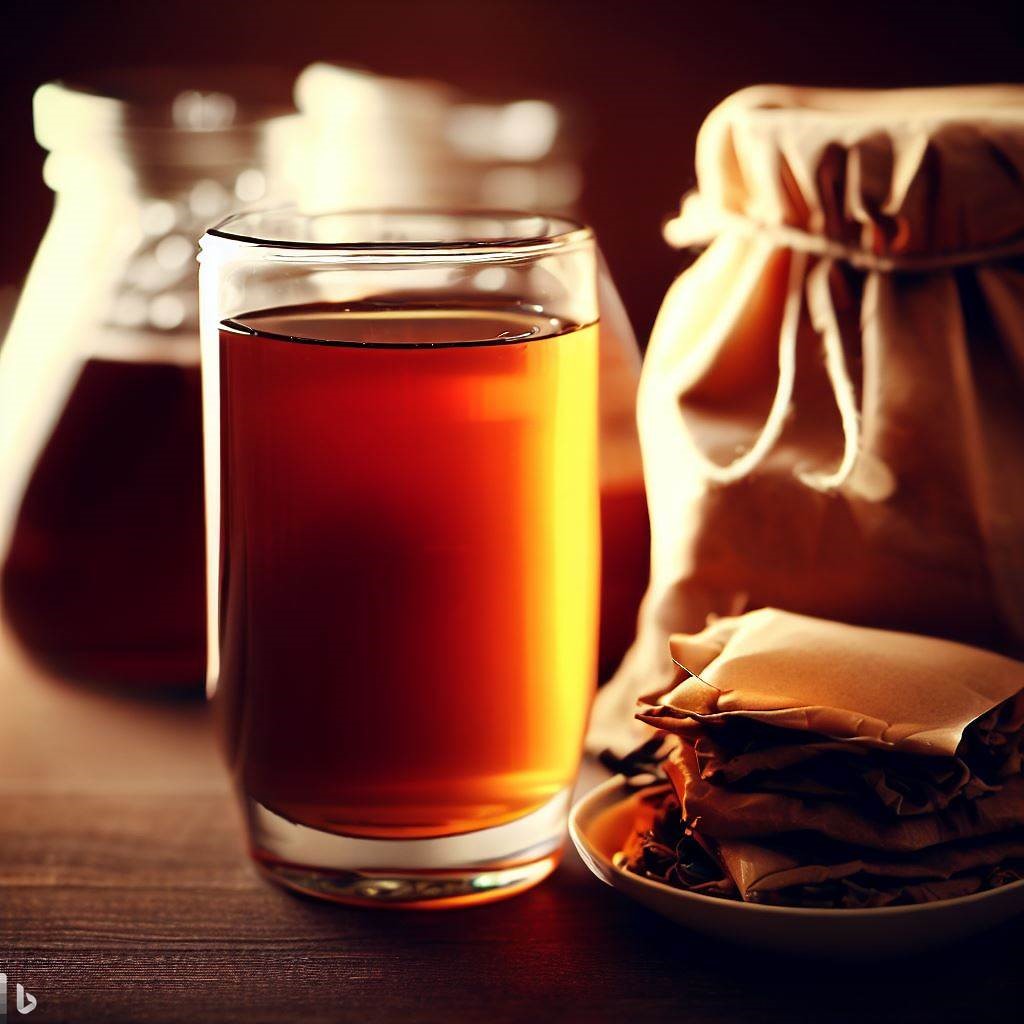
On the other hand, are champions of consistency and convenience. Tea bags typically contain smaller pieces of tea leaves, sometimes referred to as “tea dust.” While they may not match the complex flavors of loose leaf tea, they can still produce a decent brew. The small size of the tea particles allows for a quick and consistent extraction of flavor, which can be a boon when you’re brewing large batches of kombucha and aiming for a uniform flavor.
Most tea bags use black tea, which lends a consistent, bold flavor to the kombucha, making it a safe and reliable choice for kombucha brewing. However, tea bags are available in a variety of tea types, including green and herbal, allowing for a range of flavor profiles.
Kombucha Connoisseur: Comparing the Flavor Profile of Loose Leaf Tea and Tea Bags
The type of tea you use can dramatically affect your final kombucha product. High-quality, loose leaf teas can lead to a kombucha brew with robust, complex flavors and potentially more health benefits due to a higher concentration of tea nutrients. On the other hand, using tea bags can result in a consistent, if somewhat less complex, kombucha flavor. The convenience factor may make tea bags an attractive option for those who are brewing kombucha for the first time or for large-scale production.
Loose Leaf Tea: A Premium Choice
Let’s start with loose leaf tea. This form of tea is often seen as the premium option, featuring whole or minimally processed leaves. This quality usually reflects in its price, making it slightly more expensive than its bagged counterpart.
However, there’s a catch. Loose leaf tea often gives you more bang for your buck. You see, the same volume of loose leaf tea can generally be brewed multiple times, retaining flavor and potency across brews. This multi-steep ability means you can get more tea (and subsequently more kombucha) out of the same amount of leaves, potentially offsetting the initial cost.
Tea Bags: The Economical Brew
Tea bags, on the other hand, are well known for their convenience and affordability. They are typically cheaper than loose leaf tea, making them an attractive choice for those brewing on a budget. The tea inside the bags is finely ground, allowing for a quicker brew but also meaning that they lose flavor after the first use.
So, while tea bags might seem the more economical choice on the surface, they may require more bags to brew the same quantity of kombucha as compared to loose leaf tea, depending on the brew’s desired strength.
Weighing the Options
If considering the cost-effectiveness of loose leaf tea and tea bags for kombucha brewing, there are a few factors to consider. If you value convenience and are brewing on a smaller scale, tea bags could be the way to go. Their lower initial cost and ease of use make them a straightforward choice.
However, if you’re planning on brewing large batches or value the ability to customize your brew’s strength and flavor, loose leaf tea might be more cost-effective in the long run. The tea’s ability to be steeped multiple times without significant loss of flavor can maximize your return on investment.
You should note that prices can vary based on the type of tea, the brand, and where you’re purchasing from. It is always a good idea to do a bit of market research to ensure you’re getting the best deal for your brewing needs
Brewing with Loose Leaf Tea
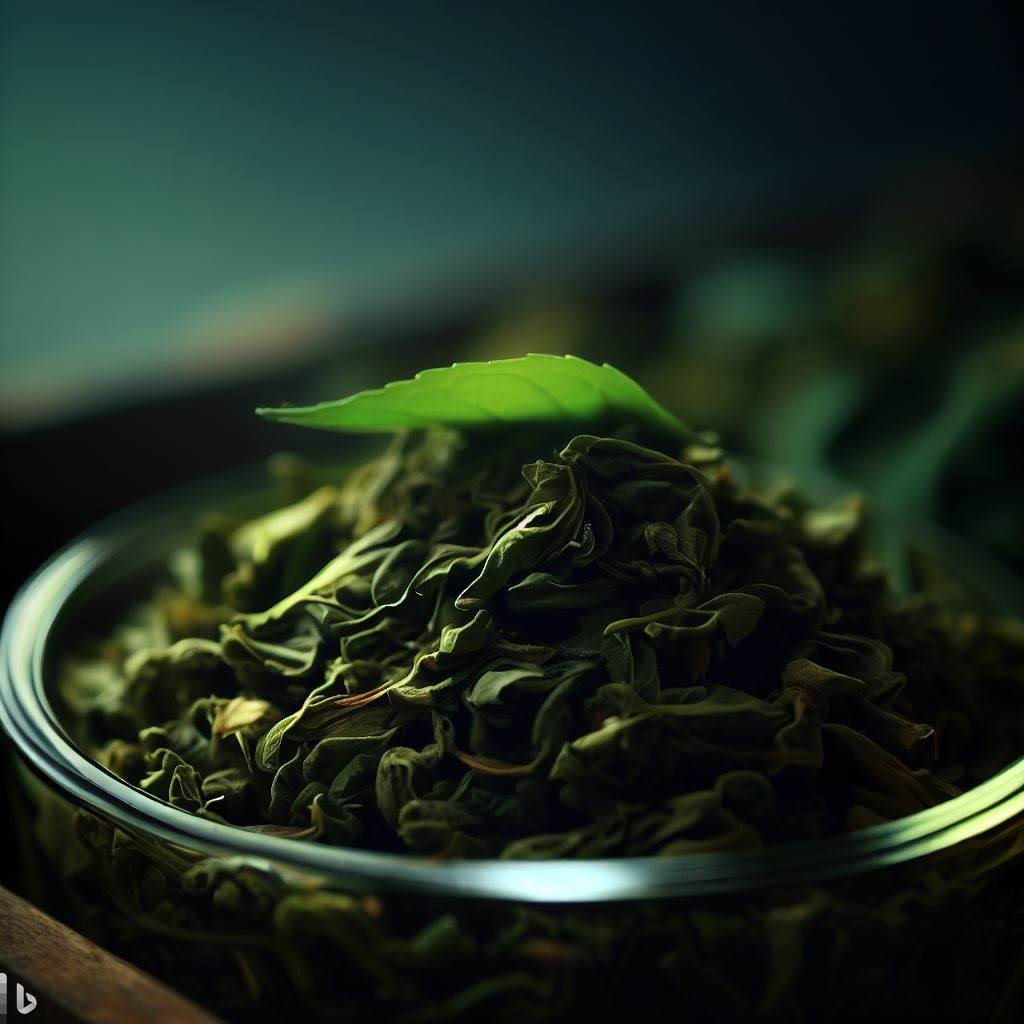
Loose leaf tea is known for its superior flavor. It consists of whole or minimally broken tea leaves. These leaves unfurl and expand as they steep. This process extracts a complex and nuanced flavor profile.
Brewing kombucha with loose leaf tea requires a bit more effort. You need to measure the right amount of tea. Then you steep it in hot water for the right duration. The process requires a tea infuser or a strainer to separate the leaves from the brew. But many believe the extra effort is worth it for the superior flavor.
Brewing with Tea Bags
Tea bags, on the other hand, offer simplicity. They contain smaller pieces of tea leaves or ‘fannings’. These particles allow for a quick brew. Just dip the bag into hot water, let it steep, then remove it. No strainer needed. Steeping time is about half that of loose leaf.
However, the flavor extracted from tea bags may not be as rich. They often produce a uniform, less complex flavor. This consistency can be an advantage, especially for large-scale brewing.
SCOBY Health: Loose Leaf Tea vs Tea Bags
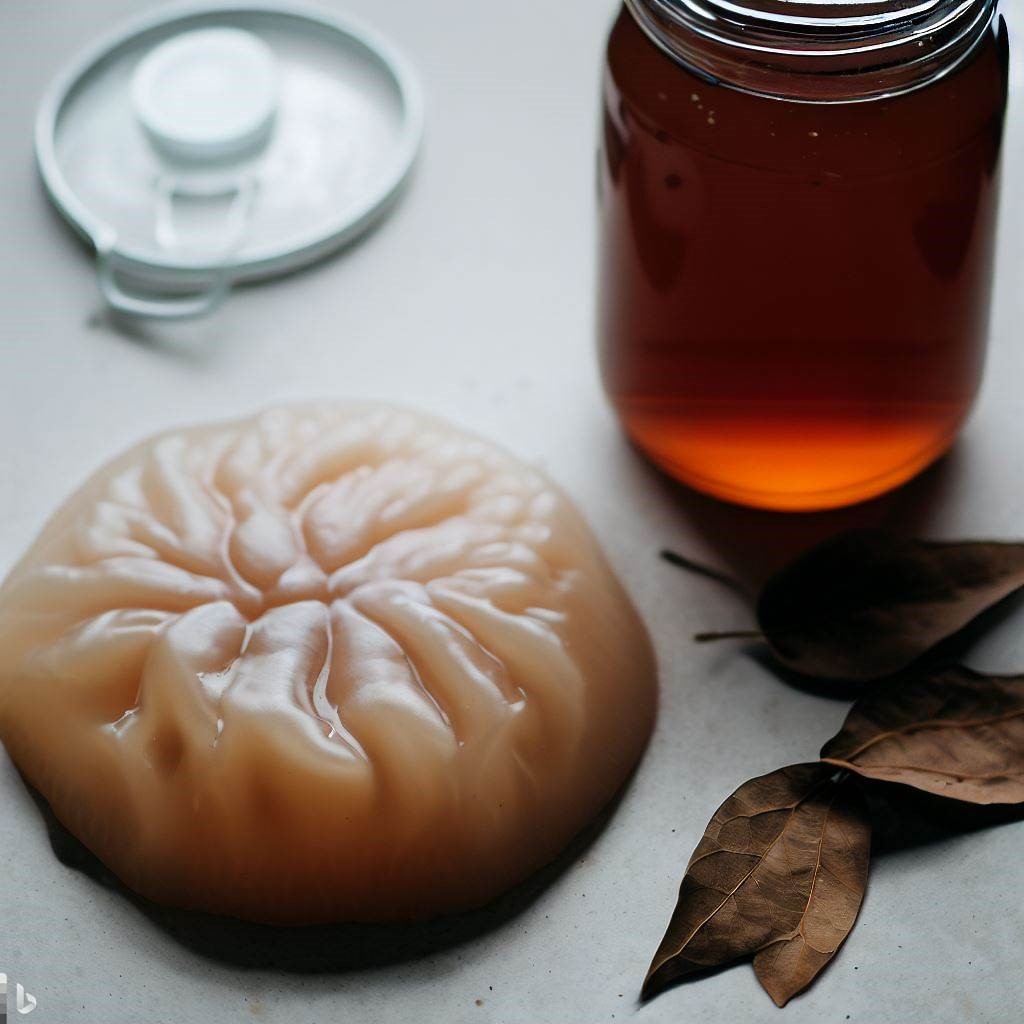
A healthy SCOBY is the heart of every kombucha brew. This Symbiotic Culture Of Bacteria and Yeast thrives on the nutrients extracted from the tea. The choice of tea, whether loose leaf or tea bags, can impact SCOBY health. Let’s delve deeper into this subject.
Loose Leaf Tea and SCOBY Health
Loose leaf tea, considered the premium choice, can have a positive impact on SCOBY health. Whole, minimally broken leaves release a wide range of nutrients. These nutrients can boost SCOBY growth and vitality.
Loose leaf’s form of tea tends to have a high concentration of polyphenols and minerals. These compounds can aid SCOBY fermentation. Which results in a potent kombucha brew.
Tea Bags and SCOBY Health
Tea bags are a popular choice due to their convenience. However, their impact on SCOBY health can be different. The tea inside these bags is usually finely ground. Which can lead to a rapid, yet shallow extraction of nutrients.
The process can suffice to feed the SCOBY. Yet, it may not offer the rich nutritional profile of loose leaf tea. This factor could potentially impact the longevity and vitality of the SCOBY.
Exploring Tea Varieties: Loose Leaf vs Tea Bags in Kombucha Brewing
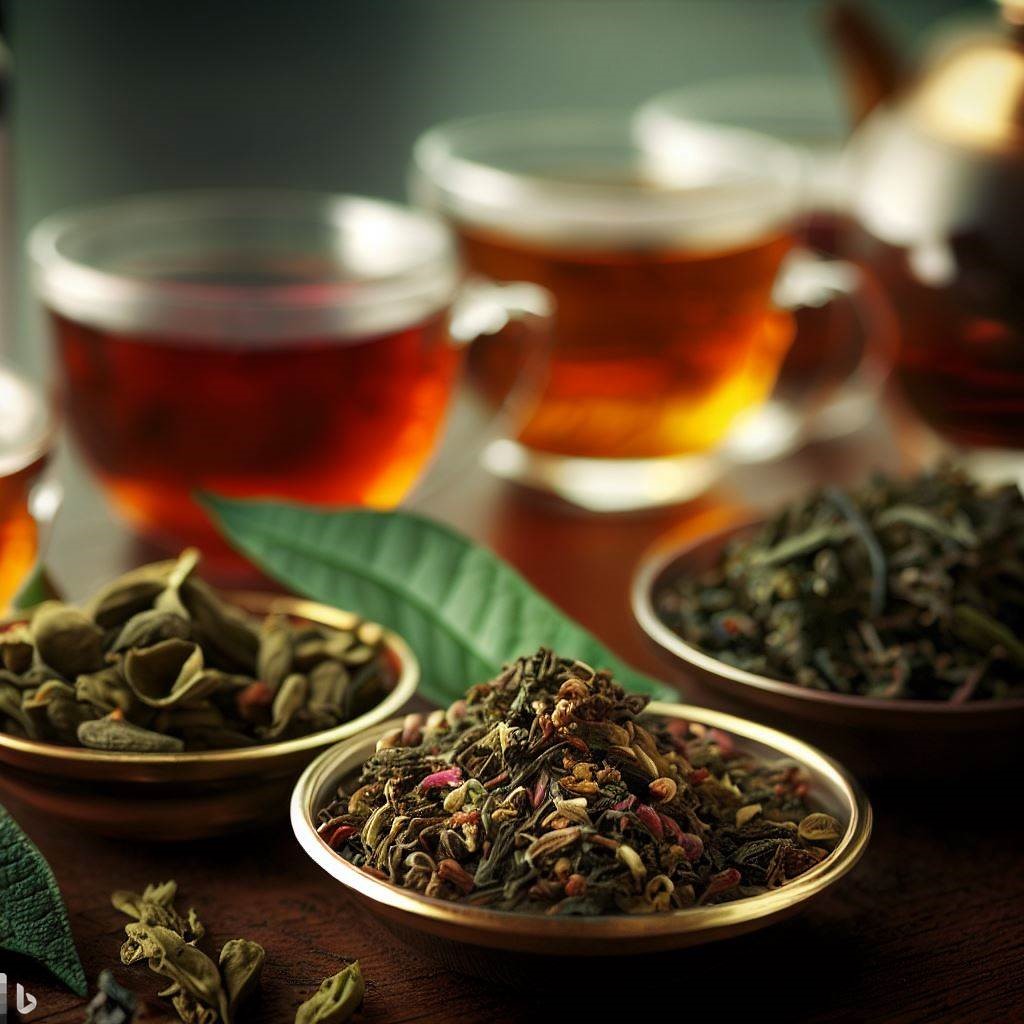
The world of tea is as varied as it is vast. With endless options to explore, tea adds a unique flavor profile to your kombucha. Let’s unravel the differences in variety between loose leaf and tea bags, and their impact on your brew.
Loose Leaf Tea: A Broad Spectrum
Loose leaf teas come in a diverse array. From delicate white teas to robust black teas, there’s a choice for every palate. Each type brings its own flavor, aroma, and properties to your kombucha.
The beauty of loose leaf tea lies in its ability to retain the leaf’s integrity. This allows for a full expression of flavors and antioxidants. Consequently, the properties of the tea can enrich your kombucha brew.
Tea Bags: The Common Choices
Tea bags, while convenient, often lack this expansive variety. They typically contain more common teas like black, green, and herbal blends. The smaller, broken leaves can lose some natural oils that contribute to flavor and health benefits.
Yet, tea bags can still create a pleasant kombucha. They provide a consistent flavor and basic nutrients required for kombucha fermentation.
Making the Brew Decision
In terms of variety, loose leaf tea clearly takes the lead. It allows for a greater exploration of flavors and tea properties. This aspect can enhance the quality of your kombucha, making each batch unique. Tea bags, on the other hand, provide a smaller selection but with ease and consistency. They can still yield a good kombucha, especially if you prefer a simpler brew process.
Green Brewing: The Environmental Impact of Loose Leaf Tea vs. Tea Bags
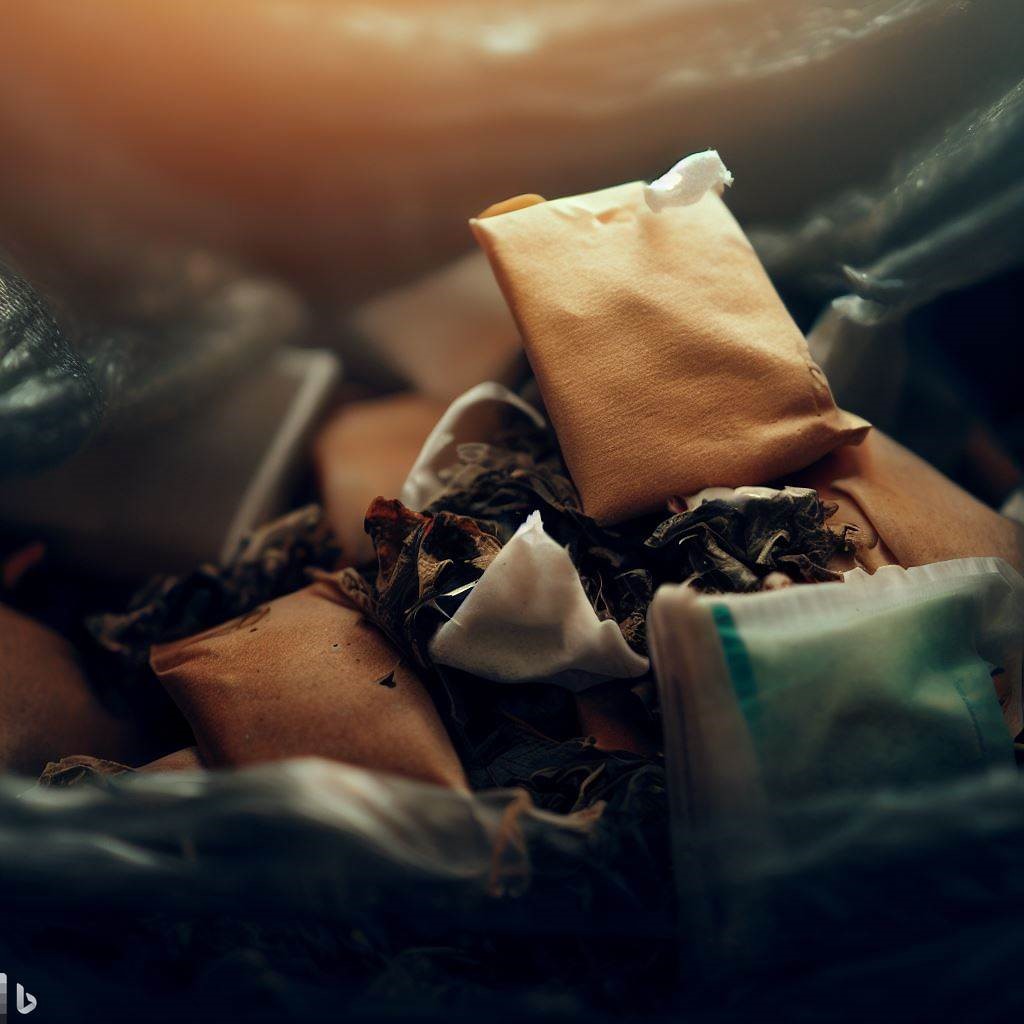
As conscious consumers, we often weigh the environmental impact of our choices. This holds true even in kombucha brewing. How do loose leaf tea and tea bags fare in terms of eco-friendliness? Let’s find out.
Loose Leaf Tea: A Greener Choice?
Loose leaf tea comes with a smaller environmental footprint. The tea leaves are usually sold in bulk and have minimal packaging. This reduces waste compared to individually wrapped tea bags.
After brewing, you can compost the used tea leaves. They return to the earth, completing the cycle in a sustainable manner.
Tea Bags: A Convenient Concern
Tea bags, while convenient, may pose environmental concerns. Many bags contain plastic, which isn’t biodegradable. Even ‘biodegradable’ options sometimes require industrial composting facilities.
The individual packaging of tea bags also contributes to waste. Compared to loose leaf tea, this can make tea bags a less green choice.
The Sustainable Brew
When it comes to environmental impact, loose leaf tea seems to win. It provides a sustainable option without compromising on flavor or quality.
However, tea bags, while practical, present more challenges in terms of waste and non-recyclable materials. Therefore, eco-friendly tea bag alternatives are emerging, signaling a positive shift.
The Verdict: A Matter of Preference
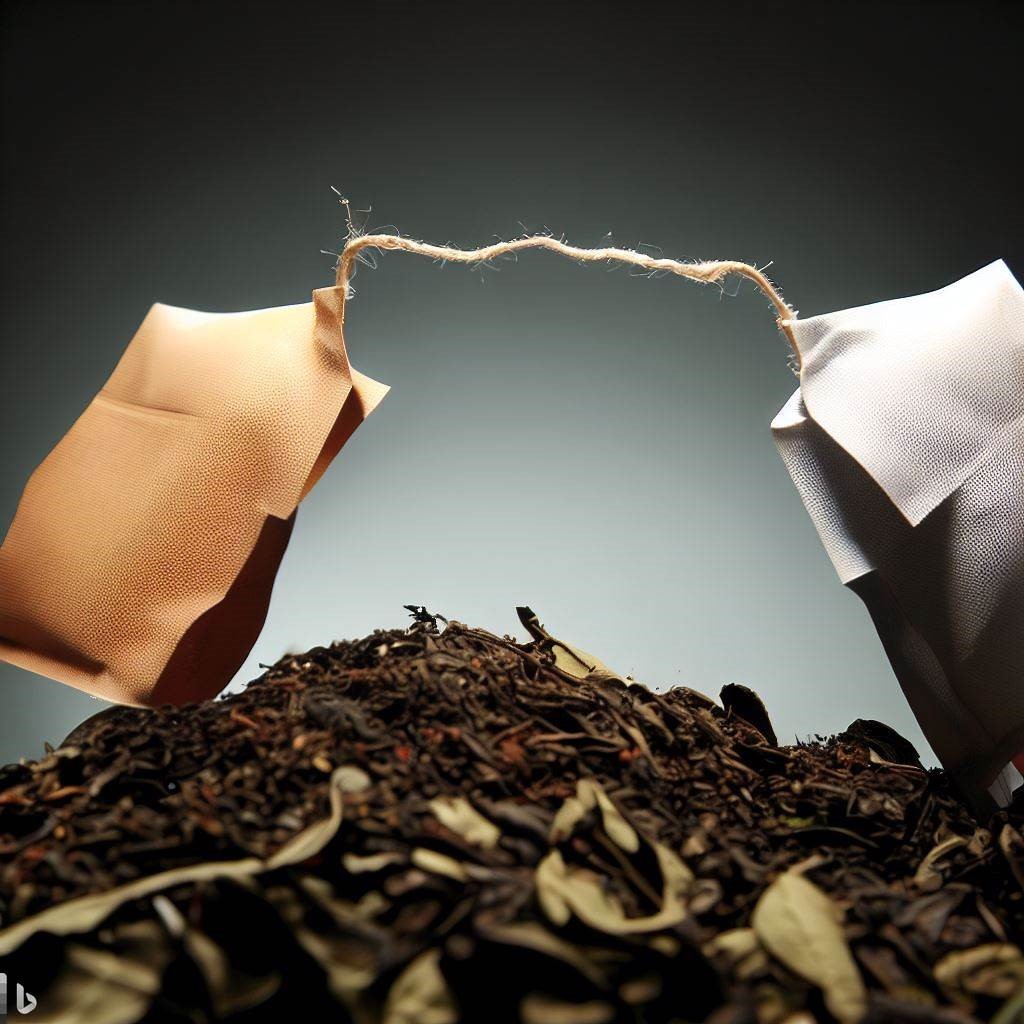
All in all, whether you opt for loose leaf tea or tea bags in your kombucha brewing boils down to personal preference. If you’re a flavor enthusiast who loves experimenting with nuanced tastes and aromas, loose leaf tea might be your ally. On the flip side, if you’re seeking consistency, convenience, and a straightforward flavor profile, tea bags could be your go-to choice. Personally at GMK we slighlty prefer Tea Bags to loose leaf for simplicity and consistency in brew. But there are certainly huge benefits to loose leaf and we experiment with that too. But you can’t go wrong in Kombucha brewing!
Remember, no matter what type of tea you choose, always aim for high-quality, organic tea to ensure the health of your SCOBY and the taste of your final brew. Happy brewing y’all!
Thanks for reading this GMK Article on Tea Bags or Loose Leaf Tea. Read some more articles:

